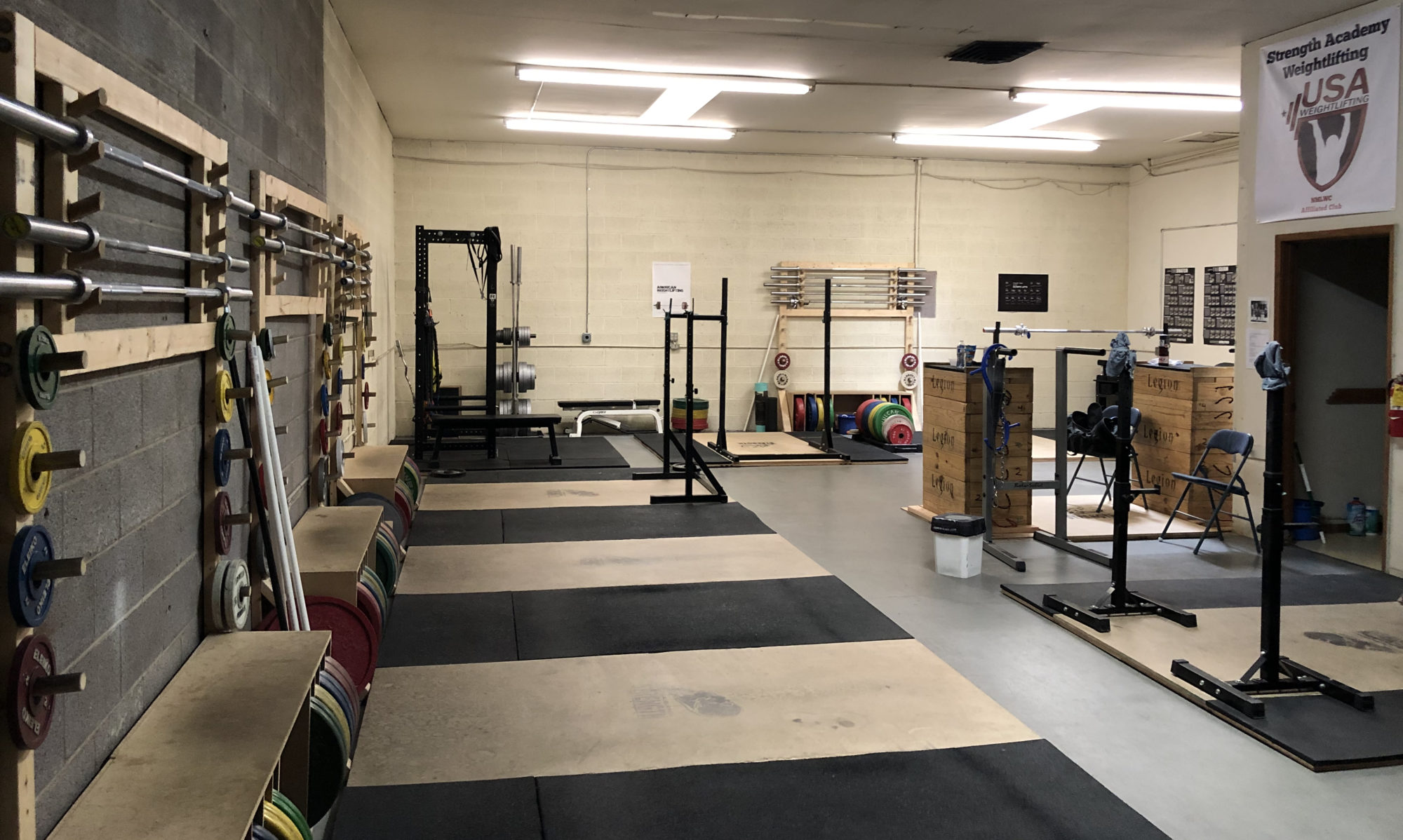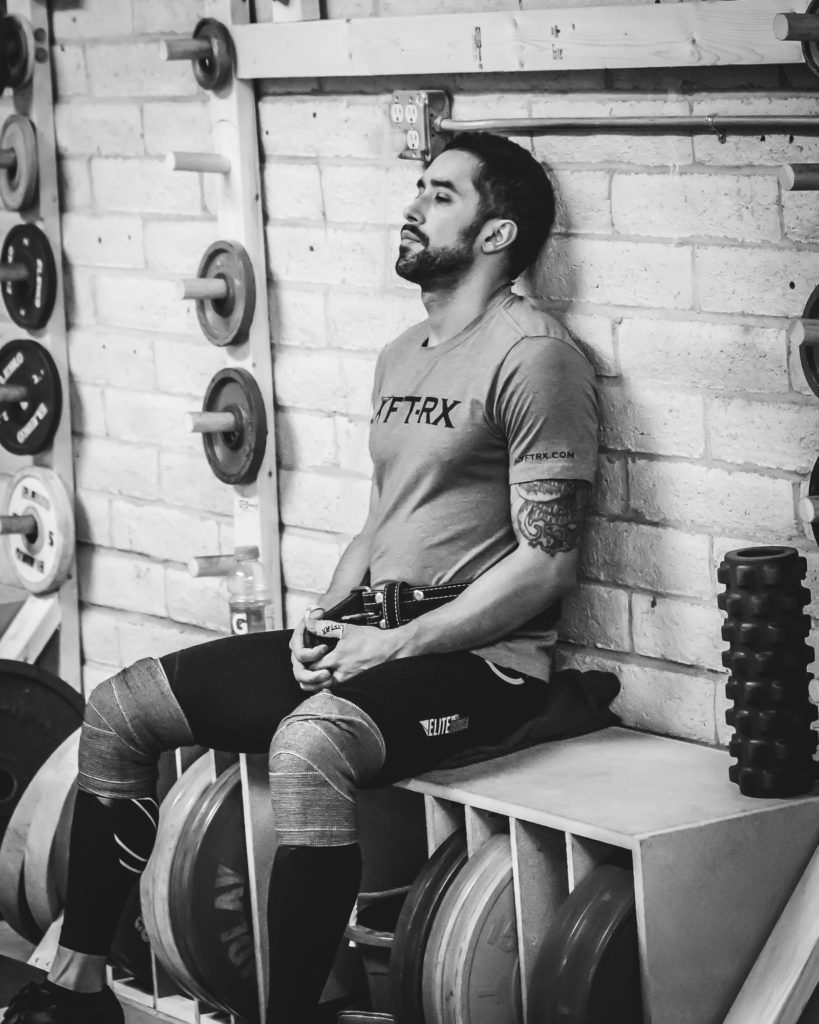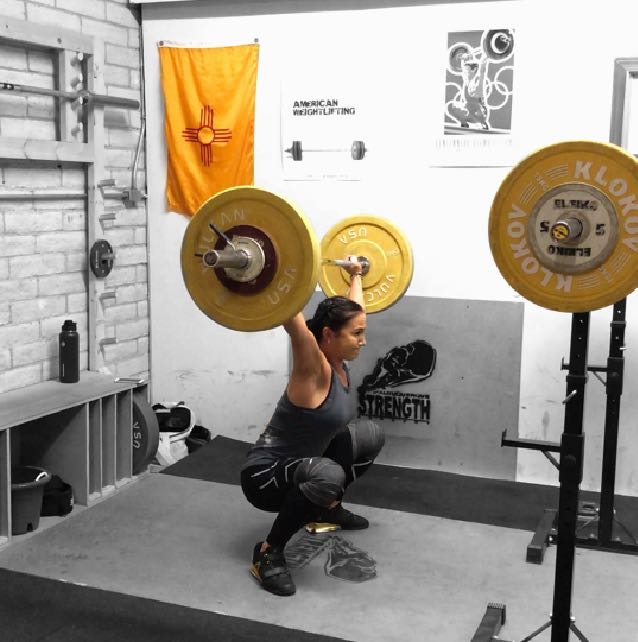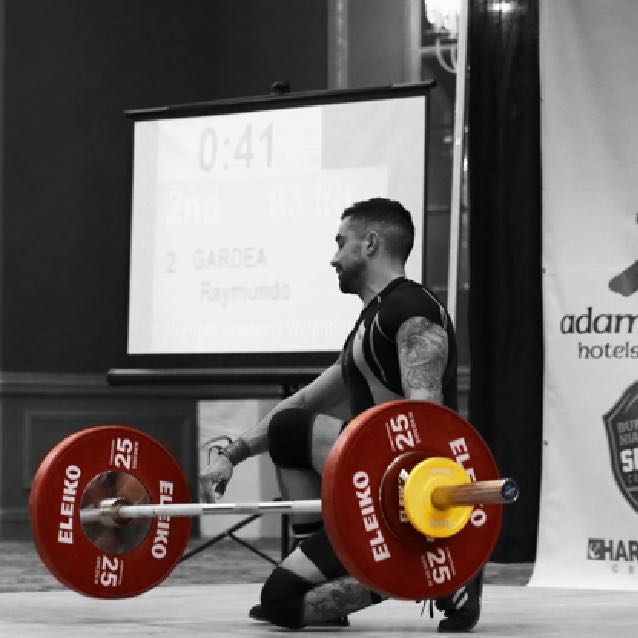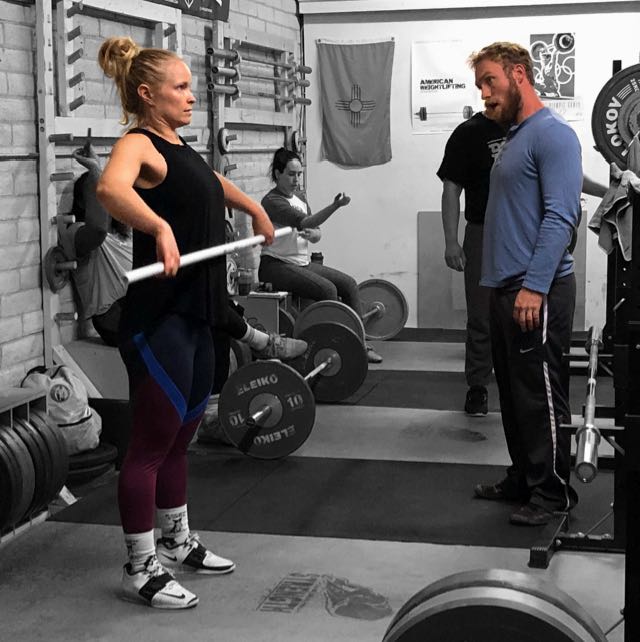
I sit there with my eyes closed and I can’t hear anything, it’s like I’ve gone temporarily deaf. I can still feel though, and when I reopen my eyes the movement around me is just a blur of figures moving back and forth, and all I feel is the coldness of the chair against my back and glutes. I’ve done all my warmup attempts and I’ve missed my opener twice, this is my last chance, I’m not thinking about it, but I know it. My body is warm, and nothing hurts, so that’s a plus, but I need this last lift to make a total. Coach says something to me, and it sounds like a mumble, all I know is I’m up to lift. I stand up, the clock hasn’t started yet because the loaders are putting the final touches on the barbell for my last Snatch attempt. Then my hearing comes back like the crack of breaking branch in a still forest, my name is called along with the weight that’s waiting for me on the barbell.
I pass through the dark heavy curtains that separate the stage from the back and the brightness of the light is nearly blinding. An ocean of faces watching as I approach the steps to the stage and the platform, and my heart quickens its pace just a little bit. I take the executioners steps up to the platform and make a pit stop at the chalk saucer, bathing my hands in the powdery white substance I trust to help keep my grip on the bar. I look at the barbell as I set the grip enhancing block of dust back in its resting place and I think to myself “It’s just me and you.” My body turns to face the platform and I take a few steps and stop directly behind the platform and line myself up with the barbell, I take a deep breath and step onto the planks of solid wood that make up the square of space I have to perform my lift on.
Light shines brightly on the space I am occupying, and even though I know the crowd and center judge are in front of me, I can only see the edges and outlines of them. I step up to the barbell and I look above the crowd, searching for a spot to fix my gaze once I have the barbell overhead, then I return my eyes to the bar. I line up my feet with a measured, practiced, distance from the bar, then I reach down and put my right hand on the knurling just outside the ring, then the same with the left. I feel the chalk and the metal fasten to each other like a quick drying glue as I synch my thumb around the bar with my middle and pointer fingers. I sit in a squat with my chest and eyes up looking again for the spot I chose earlier. I raise myself up and bring my hips high into the air, but my chest is dropped so I can lean over and take one last large breath before I go. In this moment, there is nothing, only silence.
No fear, no joy, no doubt, no worry, only bottled aggression and the tingle of nervous energy coursing through my body. “I got this.” I take a final slow breath into my belly, then up into my lungs, then hold it against my abs like a self-inflicted bear hug. I lower my hips and flex my back as I quickly set my start position to take out any slack and then I push against the floor with my both my feet. The bar leaves its resting place and picks up speed as it orbits my body like a rocket ship about to slingshot using a planet’s gravity. No thoughts enter or exit, only action, the action of a movement performed hundreds of times. I’m pushing as hard as I can against the floor like an inverted leg press and as my legs reach the fullness of their length, I begin to use my arms to propel myself back to the ground as the bar continues its upward motion.
CRACK! My feet connect with the platform as I press with all my might against gravity and the falling weight. I’ve pulled myself into the full depth of my squat with the weight locked out overhead, my eyes fixed on the spot I found earlier. No time passes between the bottom and starting to stand as I trust my legs to drive the weight and my body away from the floor. As I stand to my full height, a sense of relief begins to wash over me like a warm ocean wave. I wait for just a second until I see the blinding little down signal displays and the weight of the world comes falling down as I guide the barbell down from its overhead flight. The journey of the weight ends with a concussive thud and the barbell rolls to a stop. I turn and wait for the decision of the judges, 3 white lights as I step down and off the stage…
…I open my eyes, and I hear my name being called to take my final attempt to make a total, my last Snatch. “I got this.”
